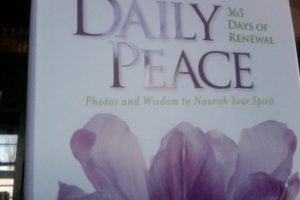Where there is fear of God to guard the dwelling,
there no enemy can enter. St. Francis
Admonitions XXVII
[The Message of St. Francis, New York: Penguin Studio, 1999, p. 9]
I’ve never been a fan of the “fear of God” language. I think it’s too easy to mistake its true meaning for the false idea that God will harm anyone and everyone who makes a mistake or behaves in a less than morally perfect manner. My definition of the “fear of God”: Yikes! My life is laughably brief and limited compared to the age of the universe and scope of God’s creative action within it. Time didn’t begin with my birth and won’t end with my death. After all, I am a very small person in a very big cosmos.
At the same time, knowing my relative size and duration within the universe is not a commentary on my value or significance. There is no such thing as an insignificant life. Every single one is unique, precious in the eyes of God. You and I may only take up a speck of space and moment of time, but such specks and moments change the very nature of this whole universe.
When I accept my limited existence and my unique place in the grand scheme of things, then I claim the blessing of God’s love for me and every other being that ever has or ever will grace this vast universe. No one can take my place or steal God’s love from me. I dwell in God’s love, so do you, so does everyone else. Who can steal what is freely given? Where there is enough love for everyone, how can there be enemies? And with God, there is more than enough.






